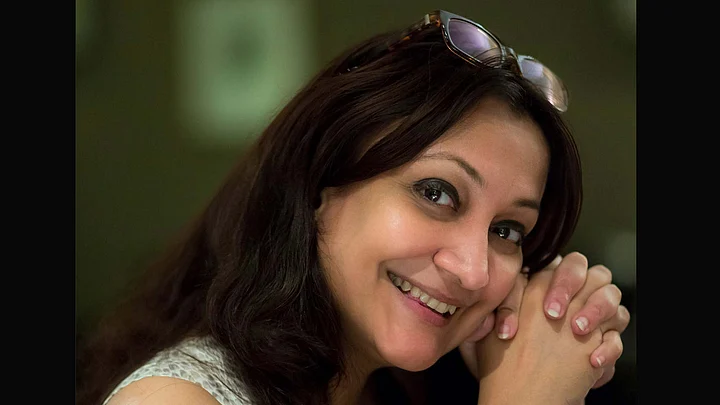The brutality of the terror attack in Bangladesh’s capital has shaken the very ground on which we stand. In the wake of the deaths of 20 innocent people in the hands of militants who were allegedly affiliated to ISIS, people are reaching out to others with messages of solidarity and a call for humanity.
Kolkata-based professor, Aloke Kumar was among those who had lost a dear one in the horrific attack that took place on Friday night. His friend, HR professional Ishrat Akhond from Dhaka was one of 20 who was cruelly hacked to death with a machete.
Ishrat was in Holey Bakery with several Italians fashion designers, most of whom were also killed. On the day of the attack Ishrat was neither wearing a hijab nor did she attempt to prove her Islamic identity by reciting the Koran in front of the attackers.
Crestfallen after the attack, in a post on Facebook, Aloke Kumar wrote an eulogy for Ishrat glorifying the life she led and the person she was till she fell to her death while defying to cater to the hungry egos of radical terrorists.
The place of horror turns out to be a beautiful green restaurant: Holey Artisan Bakery, an expatriates’ favourite, sometimes shadowed, sometimes shining with the ixora and grass within it, as if a mouth had opened from which streamed a beam of light. So my friend’s death, which is a terrorist killing which from a distance is an all-consuming tragedy was, close-up, the story of a woman finding release from her pain. Defiant. Defiance to fall in line. A defiance against a forced show of religion. Ishrat contained a good spirit. A loving spirit. A spirit that will not cease to exist. You see, she lives within me now, in all of the lessons that she taught you.Aloke Kumar
Talking about the textile industry in Bangladesh which is the world’s second largest apparel exporter after China, Kumar wrote about Ishrat’s social contribution to the textile market.
Of the millions of wage earning children in Bangladesh in 1990, almost all of them worked in the ready-made garment industry. Based on the Bangladesh Bureau of Statistics Labour Force Survey estimated there were about 5.7 million 10- to 14-year-old children engaged in child labour. This number may have been as high as 15 million children. It is here that Ishrat played a big role. She not only convinced her own company not to employ children but was in the forefront of the industry to convince other corporate. In realising that the children without jobs would be pushed to further hardship she worked with UNESCO and other NGOs to rehabilitate these children. This is the biggest contribution of Ishrat.Aloke Kumar
(At The Quint, we question everything. Play an active role in shaping our journalism by becoming a member today.)
